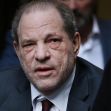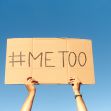At around 2:30 on Wednesday afternoon, Bill Cosby, 82, was released from Pennsylvania correctional custody nearly three years after the disgraced comedian was convicted of sexual assault. This stunning turn of events in what was a case riddled with over 70 accusers has had many scratching their heads wondering how he could go from being a guilty man to a free man.
Following Bill Cosby’s conviction of sexual assault on former Temple University employee Andrea Constand in 2018, the disgraced entertainer appealed his conviction late last year. In a decision unexpected by many, Philadelphia’s Supreme Court ruled in a split decision to vacate Cosby’s sexual assault conviction leading to his immediate release.
As expected, Cosby's defense team was overjoyed at the news. Following his release, Brian Perry, an attorney representing Cosby, shared in a news conference, "We've said from day one, we just didn't think he was treated fairly. And that ... the system has to be fair, and fortunately, the Supreme Court agreed with us." Perry added, "He's happy, his wife is happy. The system only works if it's fair to all sides. That's the bottom line."
Who is Behind This Stunning Ruling?
Since his conviction, Cosby has vehemently denied the accusations against him, despite numerous other women coming forward with their claims from decades ago. After being found guilty by a jury of his peers, how exactly was the former comedian and iconic TV dad able to walk free?
Two driving factors led to Coby’s release, and both are the reason the public response to the news has been so difficult to process. Following a review of the appeal, the state’s highest court settled on Cosby not having received proper due process.
Cosby had previously made an agreement with the state’s former district attorney, Bruce L. Castor Jr., that should have offered him protection. The details of the deal explained that if Cosby “agreed to sit for a deposition in a civil case” brought forward by Constand, he would not be charged. In reality, however, incriminating statements that Cosby made in the deposition were later used against him to secure the sexual assault conviction. Some of the self-incriminating statements included Cosby’s admission that he would sometimes give drugs to women who would later claim to be his victim.
In addition to this, the court deemed the proceedings during Cosby’s trial to be inconsistent with what was expected. Initially, the courts decided that it would hear the testimony of only one witness; however, five more accusers took the stand to share their accounts of how Cosby abused them.
Justice David Wecht wrote for the court and explained that the conviction following Cosby's court proceedings was “an affront to fundamental fairness, particularly when it results in a criminal prosecution that was forgone for more than a decade.” Wecht went on to explain that the previous district attorney should have stood by the original deal they made with Cosby. Following the handling of the trial, Wecht wrote that vacating the conviction "is the only remedy that comports with society's reasonable expectations of its elected prosecutors and our criminal justice system."
What Has Been The Public Response
The stunning turn of events in Cosby's downfall has sparked confusion in the public as well as outrage from his victims. Immediately following the news, Constand shared a statement along with her lawyers in which they described Cosby's release as “disappointing” and “of concern.” Constand along with survivors and advocates for sexual assault fear that the reversal in his conviction will discourage other victims of sexual assault from coming forward and pursuing justice against their accusers.
In an interview with CNN, Victoria Valentino, another Cosby accuser, shared that the ruling was “disheartening,” especially since she felt the “me-too” movement played a role in helping get him convicted. She explains, "Because we spoke out and we saw justice with Cosby, everyone else felt empowered and spoke out." Valentino adds, "This is really a sad statement about a woman's value, a woman's worth — what is happening right now, and we need to do something about this. I just don't know what. I'm so stunned. My stomach is in knots."
Other accusers of the comedian shared statements all acknowledging their shock and the disheartening impact it may have on future sexual assault victims.
One accuser who was 19 when she was given quaaludes by Cosby before her alleged sexual assault shared that the news “took her breath” away. The woman, Therese Serignese, who is now 64 explained, "I just think it's a miscarriage of justice. This is about procedure. It's not about the truth of the women." She described that the nearly three years Cosby spent behind bars was “as good as it gets in America" for sex crime victims.
Where Does Cosby Go From Here?
Lawyer Gloria Allred helped to represent over 30 Cosby accusers during his downfall four years ago. In a statement she shared following Cosby’s release, she explained, “Despite the Pennsylvania Supreme Court's decision, this was an important fight for justice and even though the court overturned the conviction on technical grounds, it did not vindicate Bill Cosby's conduct and should not be interpreted as a statement or a finding that he did not engage in the acts of which he has been accused."
In the evening hours following his release, Bill Cosby broke his silence through Twitter in which he thanked those who stood by his side. Cosby wrote, "I have never changed my stance nor my story. I have always maintained my innocence. Thank you to all my fans, supporters and friends who stood by me through this ordeal. Special thanks to the Pennsylvania Supreme Court for upholding the rule of law."
The procedural technicality that allowed Cosby to walk free is the same one that will keep him from being retried for the same charges as well. Unless new evidence surfaces from new accusers, Cosby may be a free man for the remainder of his life. Although legally Cosby will not serve any more time for his sexual assault conviction, the court of public opinion still holds firm that the procedural technicality that set him free is a miscarriage of justice.






